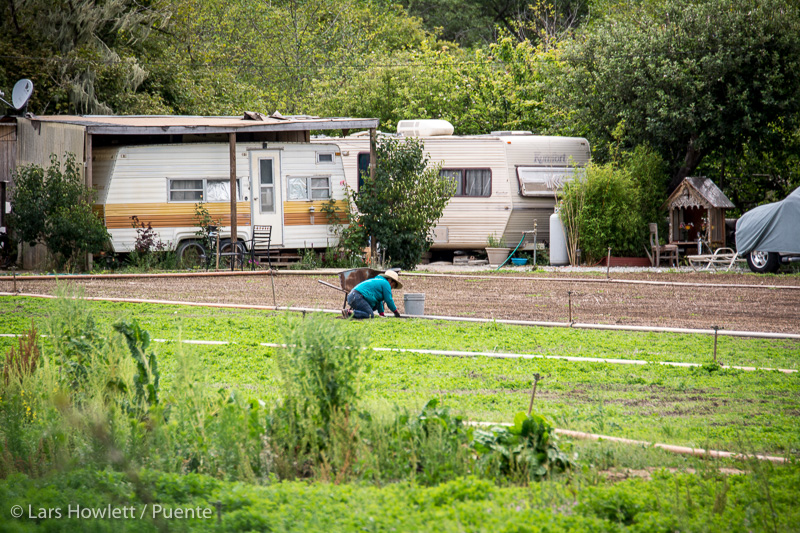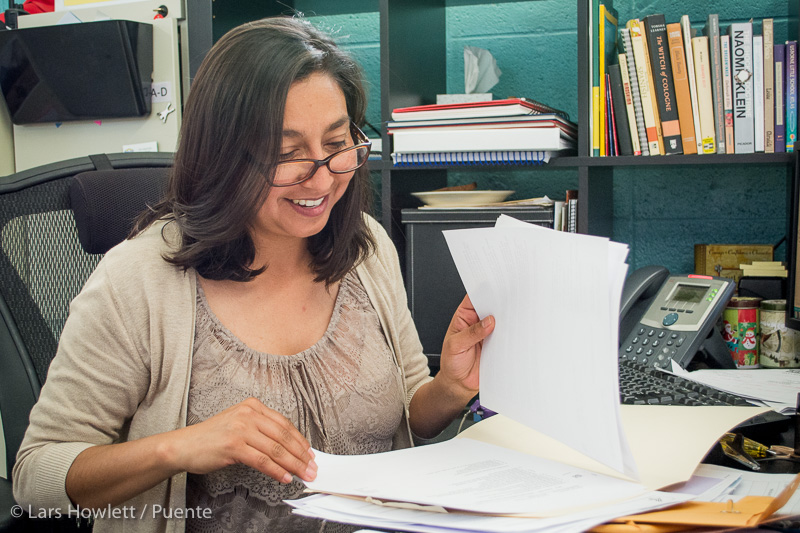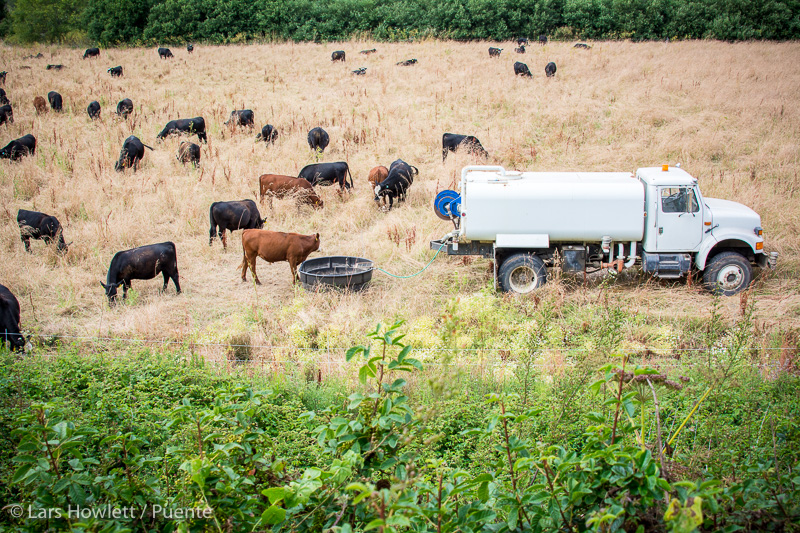
What is freedom? To Bernardo Pereira, it’s the new way the world looks at him as a college student with legal documents, including a driver’s license. To Lorena Calvillo, it’s her future career as a civil engineer, made possible by legal documents that give her the right to work – and her college tuition to boot.
Pereira and Calvillo are “Dreamers,” first-generation students whose parents brought them over from Mexico as infants. Growing up in Pescadero, they knew they were different from some of their other young friends. No matter how hard they worked in school or how powerful their aspirations, the prospect of normalcy – a legal job with benefits, a legal driver’s license, even a legally purchased home someday – would elude them forever.
That changed when DACA came along. President Obama’s Deferred Action for Childhood Arrivals program offered temporary work permits and IDs to 728,000 young people who happened to be born in other countries, but were in every other way indistinguishable from other Americans. Puente has processed up to 29 DACA permits for local youth since 2012 and renewed most of them, some for a third term. Most of the youth cohort are in college now, on their way to fulfilling the kinds of dreams that any U.S. teenager aspires to.
“It’s been really helpful to have DACA,” says Pereira. “The ID means nothing to me personally – I already know who I am – but to the world it means everything. I’m identified as someone.” Pereira, whose name was changed for this story, is a 22-year-old college student studying art and business. He was never going to enroll in college without his DACA permit.
Now on the eve of the inauguration of President-elect Donald Trump, DACA is facing a likely repeal. Trump himself has sent mixed messages about DACA, praising Dreamers in a recent interview while vowing to cancel all of President Obama’s executive actions, including those that would protect them and their families from deportation.
The uncertainty is the worst part, says Puente Executive Director Rita Mancera. “Young people want to know, are their employers poised to fire them right away? I honestly tell them I don’t know – but Puente will find ways to support them regardless. They can count on us.”
It will become clear just how much their lives will be upended in the months ahead. Puente has already renewed as many DACA permits as possible, and is case-managing every youth. “We have told them: if you get a letter or other information, bring it to us and we’ll figure it out together,” adds Mancera.
Puente has spent considerable staff time and resources obtaining Board of Immigration Appeals (BIA) agency recognition, which makes it possible to assist participants with immigration needs. Three Puente staff members and one volunteer have completed the training and received certification to file legal papers on behalf of clients who need visas, green card renewals, and DACA permits.
Lorena Calvillo applied for DACA in high school, just before enrolling in classes at San Francisco State University in fall 2013. Her permit expires in October 2018, seven months short of her expected graduation date.
“I am worried. I try not to think about it – just see what happens. If I didn’t have DACA, I don’t know what I would do. I would definitely not be able to work,” says Calvillo, who is working toward a BS in civil engineering with a concentration in construction management. It’s not a field a lot of women go into, but Calvillo has always been determined. She recently flew to Philadelphia to attend the largest women’s conference for engineers in the country.
Having a DACA permit made it possible for Calvillo to apply for financial aid though the California Dream Act, and she lives near campus thanks to a special financial gift Puente helped arrange. Losing her DACA permit would mean losing her financial aid – and her job as a restaurant hostess. That job is important to her whole family, because it helps her parents pay their bills.
But even without DACA, Calvillo would find a way to pay for it all. She hopes to find work with a company that would sponsor her on the path to citizenship, and is already applying for an internship with a top company in San Francisco.
“I think it’s a bit unfair,” she says. “The fact that here aren’t options for people like me who want to work – it’s like, ‘Okay, you’ve been here for all these years, but now were going to shut you guys out.’”
It has become clear, moving forward, that many DACA youth will need more support from Puente because they won’t have the ability to earn that extra cash.
“There are going to be some people who are going to retreat into themselves. But others have already developed a resilience. They have been a part of the world out there, and have been just like other people,” says Mancera.
They’ve earned respect and independence. You can take away a document, but DACA has already transformed these youths into fighters who know what they deserve: freedom.
I think people like Lorena are going to become advocates for other Dreamers,” says Mancera. “These kids are our country.”
To support Puente’s efforts on behalf of DACA youth, click here.






